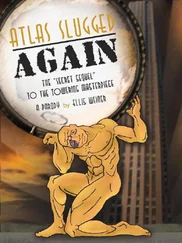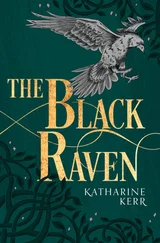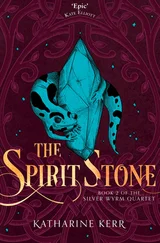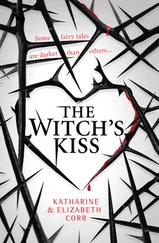Jaya’s expression had instantly softened. Her dream was to be a veterinarian. “Of course I understand. What kind of puppy?”
“We think he’s a border terrier, but we aren’t totally sure. Apparently he was found alone in Central Park.” For some reason the lie tasted rancid in Watt’s mouth.
“No way! I have a border terrier rescue too! His name is Frederick,” Jaya exclaimed. “They found him under the old Queensboro Bridge.”
“What a coincidence,” Watt said flatly.
Jaya didn’t seem to notice his lack of surprise. She looked at him through her thick fluttering lashes. “Want me to come help? I’m really good with rescues,” she offered.
It was exactly what Watt had been fishing for, yet now that Jaya had suggested it, he was shockingly uninterested. He felt as if nothing or no one would surprise him ever again.
“I think I’ll be okay,” he offered. “But thanks.”
Jaya recoiled. “Okay, then,” she said coolly, and stalked away.
Watt ran a hand wearily over his face. What was wrong with him? Derrick would never let him hear the end of it if he knew Watt was rejecting cute girls who invited themselves over. Except that he didn’t actually want any of those girls, because none of them could erase the memory of the one he’d lost. The only one he had ever really cared about.
Instead of heading for the exit, Watt found himself walking the other direction. His toes edged against the painted safety line. The stars glittered far up in the sky. To think that their light was careening wildly toward him at three hundred million meters per second. But what about darkness? How fast did the darkness rush toward you after a star died and its light went out for good?
No matter how fast light traveled, Watt thought, the darkness always seemed to have gotten there first.
Inevitably, his thoughts turned back to Leda. This time he didn’t even try to distract himself.
It was his fault. He should have watched Leda more closely, those first few weeks after Dubai. She had insisted that she needed some time alone, after everything that happened. Watt tried to respect her wishes—until he learned that she had overdosed and was going back to rehab.
When she got home several weeks later, Leda didn’t seem all that eager to see him.
“Hey, Watt,” she’d said woodenly, holding open the front door. She was wearing an oversized charcoal sweater and black plasticky shorts, her feet bare on the hardwood floor of her entryway. “I’m glad you came by. We need to talk.”
Those four words filled Watt with a shiver of foreboding. “I—I was so worried about you,” he’d stammered, taking a step forward. “They wouldn’t let me talk to you at rehab. I thought that you were . . .”
Leda abruptly talked over him. “Watt, we need to stop seeing each other. I can’t be with you, not after everything I’ve done.”
Watt’s heart thudded. “I don’t care,” he assured her. “I know what you’ve done and I don’t care, because I—”
“You don’t know what you’re talking about!” Leda cried out. “Watt, Eris and I shared a father. I killed my half sister!”
Her words reverberated in the air. Watt felt his throat close up. Everything he wanted to tell her now seemed inadequate.
“I need to start over, okay?” Her voice was shaking, and she seemed determined not to meet his eyes. “I can’t get better with you around. You’re one of my triggers—the worst of my triggers—and as long as I’m with you, I’ll keep turning back to my old behaviors. I can’t afford to do that.”
“That isn’t true. You and I make each other better,” he tried to protest.
Leda shook her head. “Please,” she begged. “I just want to move on. If you care about me at all, you’ll leave me alone, for my own good.”
The door shut behind her with a definitive click.
“Hey, step back!” someone shouted. Watt realized in a daze that he had wandered past the painted safety line, toward the gaping maw of the helipad.
“Sorry,” he muttered, and retreated a few steps. He didn’t even attempt to explain. What would he tell those people, exactly? That there was something soothing about looking out over the edge? That it was a sharp reminder of how small and insignificant he was, surrounded by this vast city? Of how little his pain mattered in the scheme of things?
Finally Watt turned and walked away from the bar, just as he had forced himself to walk away from Leda all those months ago.
RYLIN MYERS SAT cross-legged on the floor, old vid-storage devices scattered around her. Some of them were shaped like shiny circular discs, others boxy and square. Rylin’s delicate half-Korean features pulled into a frown as she considered each piece of hardware in turn, pausing over it as if internally debating its merits, before shaking her head and moving on. She was so engrossed in her task that she missed the footsteps that sounded in the doorway.
“I didn’t expect you to work so hard on your last day.” It was Rylin’s boss, Raquel.
“I wanted to organize this last collection for you before I go. We’re almost up to 2030,” Rylin said eagerly.
To Rylin’s surprise, Raquel came and knelt on the floor next to her. The lightning bolt inktat on her forearm—which was timed to flash every sixty seconds—appeared, darkened, then vanished again like smoke. “What do you think this one is?” Raquel mused aloud, reaching for a disc that was emblazoned with an animated snowflake and a pair of girls with braids.
“I like that one,” Rylin quickly said, reaching for the disc before Raquel could dismiss it. She sorted it into the pile marked SAVE: POSSIBLE ADAPTATION.
A smile curled at the corner of Raquel’s mouth. “I’m going to miss you, Rylin. I’m really glad you applied for this job.”
“Me too.”
Rylin had spent most of last year, her junior year, attending an upper-floor private high school on scholarship. She had assumed that when June arrived, she would do the same thing she did every summer and get a mindless job downTower to pay the bills. But just when she’d been about to swallow her pride and beg for her old job at a monorail snack station, Rylin had learned that her scholarship actually continued through the summer—as long as she got an academic internship.
She had applied to as many internships as she could find, especially ones that had to do with holography, the creation of three-dimensional holographic films. And she had found this internship: working for the Walt Disney archivist.
Rylin had been startled to learn that the job was located here, in the bowels of the main public library location, in midTower. She’d never been to this location, though Rylin and her best friend, Lux, used to spend hours at their nearest public library. They would trade their favorite e-texts back and forth, then make up plays about them and stage them for their bemused parents, complete with a loud, improvised sound track.
On her first day, Rylin had walked in to find Raquel sitting cross-legged on a swivel chair, spinning it back and forth like a distracted child, her ponytail whipping sideways to smack at her cheek. “You’re the new intern?” Raquel had asked, somewhat impatiently, and Rylin nodded.
Raquel explained that Disney had hired her to sort through all the old films from the pre-holo age and flag any that were ripe for adaptation. “Holographs fully saturated the market fifty years ago,” she told Rylin. “At that point, everyone stopped producing 2-D films, and the machinery to play them. A lot of content was adapted in those first few decades, but there are still so many that no one has ever bothered to redo.”
Rylin knew that 2-D–to–3-D conversion was an expensive and painstaking process. It was like turning a stick figure into a sculpture, taking a flat sheet of pixels and making it inhabit space. The whole thing required hundreds of hours of computer design and human creativity.
Читать дальше












